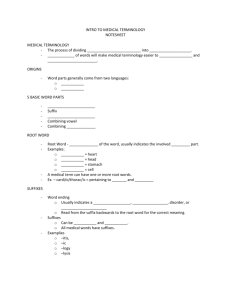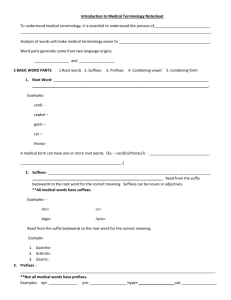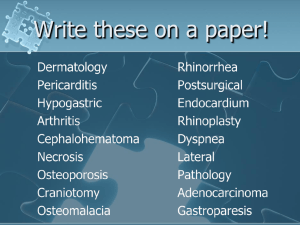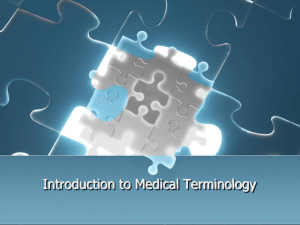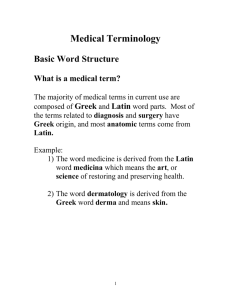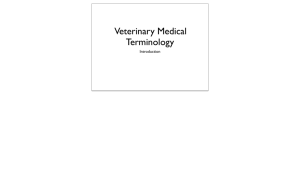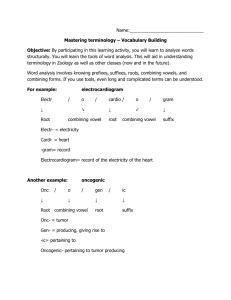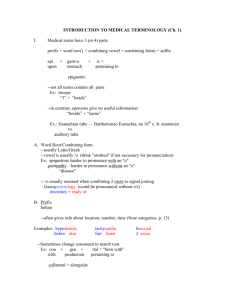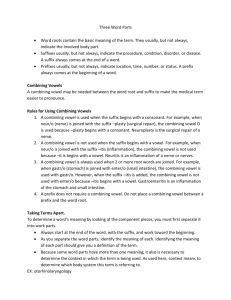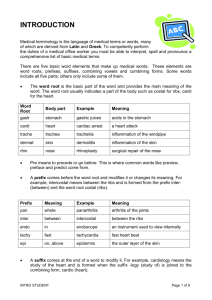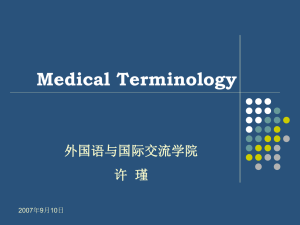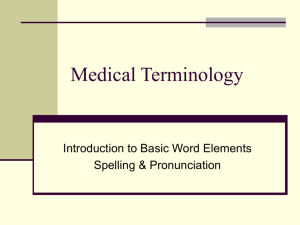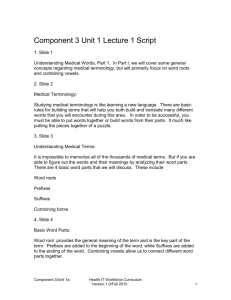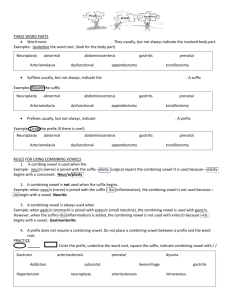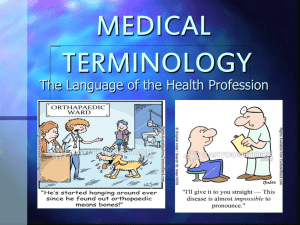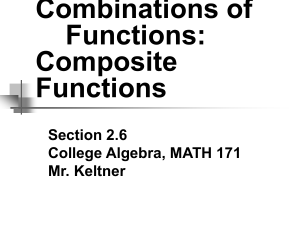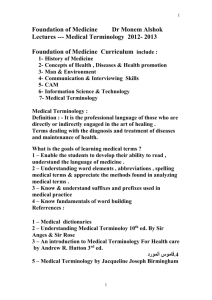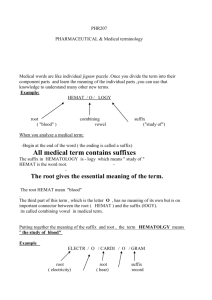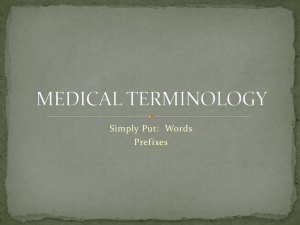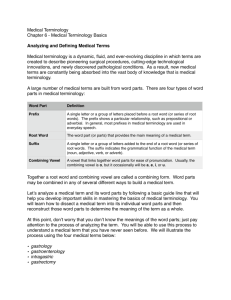1 Intro to Medical Terminology
advertisement
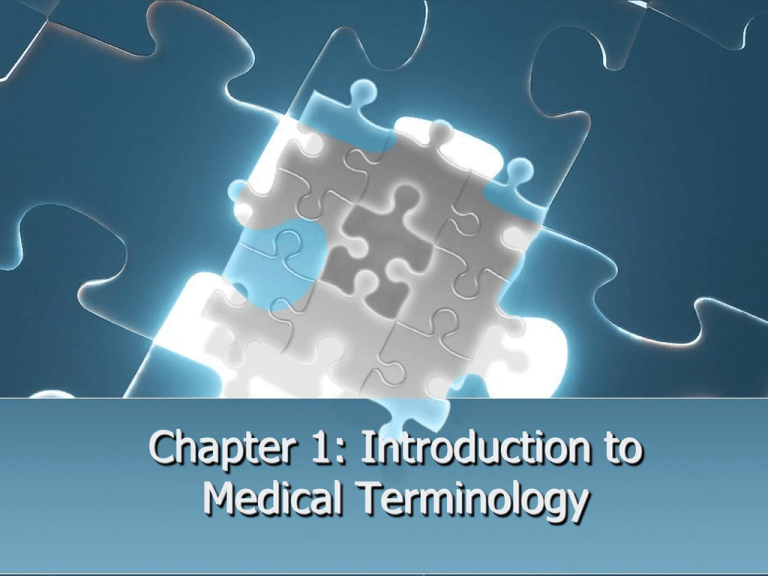
Chapter 1: Introduction to Medical Terminology MEDICAL TERMINOLOGY The process of dividing medical words into component parts. Analysis of words will make medical terminology easier to understand and remember. ORIGINS Word parts generally come from two language origins: Greek Latin 5 BASIC WORD PARTS Root word Suffix Prefixes Combining vowel Combining form ROOT WORD Root Word – foundation of the word, usually indicates the involved body part Examples: cardi - cephal – gastr – cyt – A medical term can have one or more root words. Ex. – cardi/o/thorac/ic = pertaining to heart and chest SUFFIXES Word ending; usually indicates a procedure, condition, disorder or disease. Read from the suffix backwards to the root word for the correct meaning. Suffixes can be nouns or adjectives All medical words have suffixes Examples: -itis -ic -logy -lysis PREFIXES Word beginning; usually indicates location, time, or a number Not all medical words have prefixes Examples: a pre hyper sub COMBINING VOWELS AND FORMS Combining Vowel A vowel that links two word parts together Usually an ‘o’ Has no meaning of it’s own Combining Form – root word plus a combining vowel Examples: Hemat/o – Cardi/o – Gastr/o – Oste/o – RULES FOR USING COMBINING VOWELS 1. When the ending of the root word and the beginning of the suffix are both consonants, use a combining vowel. Example 2. – hemat/o/logy When the ending of the root word is a consonant, and the beginning of the suffix is a vowel, do not use a combining vowel. Example – gastr/itis RULES FOR USING COMBINING VOWELS 3. A combining vowel is always used when two root words are joined. Example – cardi/o/thorac/ic 4. A prefix does not require a combining vowel Example – epi/gastr/ic TAKING TERMS APART Determine a medical word’s meaning by looking at the component pieces. Start at the suffix (all medical terms will have one) Identify if there is a prefix (not all medical terms will have one) Locate the root words (there may be more than one) Identify the meaning of each word part as you separate them TAKING TERMS APART Remember! If you have any doubt about the correct meaning of a word, use a medical dictionary (appendix, internet) to double check the definition. SPELLLING In medicine, spelling is critical!!! One wrong letter could mean an entirely different place on the body or test to be performed Examples – ilium and ileum, PAC and PVC, etc… TIME TO PRACTICE!!! 1. In order to break words into their component parts, you will need to become familiar with Appendix A in your textbook (starting on page 293). 2. Write the following words on your paper leaving 4 spaces between words: • Hyperthermia Endocardium Pneumonia • Gastroenteritis 3. Using the appendix, break each word into word parts by placing a line in between the breaks (a / pnea) 4. Then, define the meaning of each word part by using the definition in the appendix (a = no, not, without and -pnea = breathing) 5. Finally, write the definition of each medical word (apnea = without breathing or no breathing)
